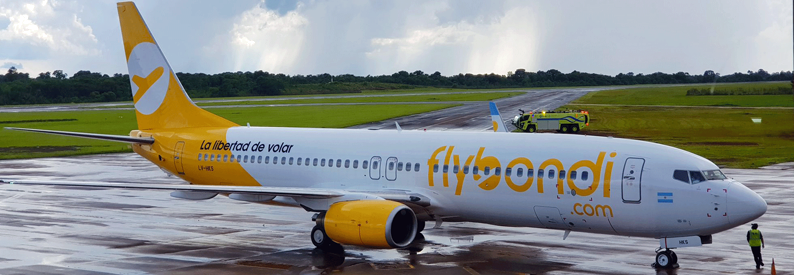Argentina’s Flybondi Struggles with Fleet Operations Amid Dollar Transaction Delays

Flybondi, Argentina’s prominent ultra-low-cost carrier, has recently faced significant operational challenges due to difficulties in processing US Dollar payments to aircraft lessors. Announced on January 12, the airline reported that it has been compelled to ground some of its Boeing 737-800 fleet, leading to substantial flight cancellations and affecting about 11.5% of its daily passengers.
The airline attributes these payment delays to the Argentinian government’s sluggishness in approving overseas service payments. Moreover, Flybondi has expressed concerns that the new financial mechanisms proposed to facilitate these debt payments do not meet the requirements of its providers, as per its official statement.
This issue has had a direct impact on the airline’s operations, resulting in the inability to pay leases and other essential services. Consequently, Flybondi is facing immediate operational hurdles, including flight cancellations and rescheduling, affecting over 1,300 passengers daily. On average, the airline serves approximately 350,000 passengers per month.
Under the leadership of Javier Milei, Argentina’s current administration is exploring the option of dollarizing the country as a radical measure to revive its economy. Flybondi has previously encountered problems related to currency restrictions.
According to the ch-aviation fleets advanced module, Flybondi’s fleet consists of fifteen 737-800 aircraft, all leased from six different companies. Currently, four of these 737-800s are inactive. Notably, the grounding of at least one aircraft, LV-KJE (msn 30700), is due to a tail strike incident earlier in the month and is unrelated to the payment issues, as the plane is undergoing repairs.
This development highlights the complexities faced by airlines operating in economically volatile regions, where financial and regulatory challenges can significantly affect operational stability and customer service. Flybondi’s struggles illustrate the broader impact of economic policies on the aviation sector, particularly for carriers operating in markets with stringent currency controls and regulatory hurdles.
